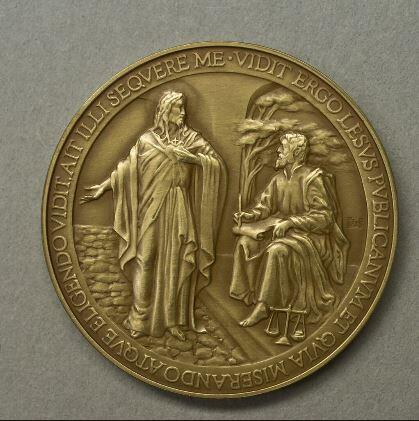As highlighted by a conversation at comments upon article describing a bit of the dynamics between national loyalties and the religious split in Ukraine:
http://news.yahoo.com/ukraine-warns-church-over-prayer-services-protesters-195502592.html
http://news.yahoo.com/ukraine-warns-church-over-prayer-services-protesters-195502592.html
Kiev (AFP) - The Ukrainian government has threatened to outlaw the
Ukrainian Greek Catholic Church for holding prayer services for
opposition protesters occupying Kiev's central square.
The culture ministry on Monday sent a letter to the head of the
Ukrainian Greek Catholic Church, Major Archbishop Sviatoslav Shevchuk,
accusing its priests of "breaking the law" by holding religious services
outside a place of worship.
The Church's priests, along with
those of the Orthodox Church loyal to the Kiev Patriarchate, hold
open-air religious services several times a day on Kiev's Independence
Square, known locally as the Maidan.
"The
breach of this law could lead to legal proceedings to put an end to the
activities" of the Church, said a scanned version of the letter
published by the opposition news website Ukrainska Pravda.
The
square has been occupied since late November by protesters who are
challenging President Viktor Yanukovych's U-turn on a landmark pact with
the European Union in favour of closer ties with Russia.
Two
tents erected on the square are used as places of worship, where
protesters pray, go for confession and even have their children
christened.
The article is about the involvement of the various main churches in Ukraine- the Vatican Loyal 'Uniate' Orthodox, and the Moscow Loyal Orthodox
"For the first time since the
independence of Ukraine, we have been put on our guard. We have de facto
been warned that they could deprive our Church of its legal status,"
Shevchuk told reporters on Monday.
"We thought that the prosecution of priests was a thing of the past."
The government warning has sparked anger among believers.
"It
is illegal, it is immoral. Nobody can forbid people to pray. Only Satan
does not want people to pray," said Pavlo, 52, as he came out of one of
the tents on Tuesday.
Yanukovych,
who is accused by the opposition of being the initiator of the letter,
said in comments released by his aides that the current "law should be
amended to allow believers to pray wherever they like."
The
Ukrainian Greek Catholic Church, also known as the Uniate Church,
follows Orthodox traditions but is loyal to the Vatican. It was banned
in the Soviet era but has become the third largest confession in Ukraine
since the country's independence in 1991.
The
Church now has around 5.5 million followers in Ukraine, around 12
percent of its population of 46 million, most of them living in the
western regions. There are also around 1.5 believers in Ukrainian
diasporas in Europe, the United States and Australia.
A bit of history: the 'Ukrainian Greek Catholic' or 'Unite' Church was created in 1596.
http://en.wikipedia.org/wiki/Union_of_Brest
http://en.wikipedia.org/wiki/Expansion_of_Russia_1500%E2%80%931800
The Poles: The Poles, who expanded from the west,
had a number of
disadvantages. The core of the Polish state was in the west and Poland
was often distracted by wars with western powers, especially Sweden.
Poland was almost an aristocratic republic. Its nobles sought to protect
their liberty by weakening the king, which also weakened the Polish
army and made a consistent frontier policy difficult. Their main problem
was the alienation of the eastern population.
The core of Poland was
Catholic, but the eastern lands were mostly Orthodox. Society in the
Polish core was based on serfdom, but there was greater freedom in the
east. Lords with land grants in the east would offer easy terms to
attract peasants.
Many people in the Polish east were runaway serfs or
adventurers who had reason to distrust a strong state [aka esp. one that's Roman Catholic]. By the 1500s,
Polish claims extended east of the Dnieper to a point south of Moscow,
although the area was thinly settled and barely administered.
Poland has a long tradition of religious freedom. The right to
worship freely was a basic right given to all inhabitants of the
Commonwealth throughout the 15th and early 16th century, however,
complete freedom of religion was officially recognized in Poland in 1573
during the
Warsaw Confederation. Poland kept religious freedom laws during an era when religious persecution was an everyday occurrence in the rest of Europe.
[91]
Commonwealth was a place were the most radical religious sects, trying
to escape persecution in other countries of the Christian world, sought
refuge.
[92] In 1561
Bonifacio d’Oria, a religious exile living in Poland, wrote of his adopted country’s virtues to a colleague back in
Italy:
“You could live here in accordance with your ideas and preferences, in
great, even the greatest freedoms, including writing and publishing. No
one is a censor here."
[27]
"This country became a place of shelter for heretics” - Cardinal Hozjusz papal legate to Poland.[92]
To be
Polish, in the non-Polish lands of the Commonwealth, was then much less an index of
ethnicity than of religion and
rank; it was a designation largely reserved for the
landed noble class (szlachta), which included Poles but also many members of non-Polish origin who
converted to Catholicism in increasing numbers with each following generation. For the non-Polish [
*]
noble such conversion meant a final step of
Polonization that followed the adoption of the Polish language and
culture.
[93]
Poland, as the culturally most advanced part of the Commonwealth, with
the royal court, the capital, the largest cities, the second-oldest
university in Central Europe (after
Prague), and the more liberal and democratic
social institutions had proven an irresistible magnet for the non-Polish nobility in the Commonwealth.
[16]
Many referred to themselves as "gente Ruthenus, natione Polonus"
(Ruthenian by blood, Polish by nationality) since 16th century onwards.
[94]
---
* Actually the so-called 'non-Polish people of the Polish Commonwealth WERE Polish, only to have been induced into a mass amnesia by the 'Rus' invaders of the 800 and 900s:
http://continuingcounterreformation.blogspot.com/2014/02/kiev-founded-by-east-polans.html
Such an amnesia was furthered by the late 1800s political movement to re-define the East Polans as "Ukrainians":
http://continuingcounterreformation.blogspot.com/2014/02/crafted-in-austria-west-ukrainian.html



